On May 15, 1992, Manchester United completed a 6-3 aggregate win over Crystal Palace to win the FA Youth Cup.
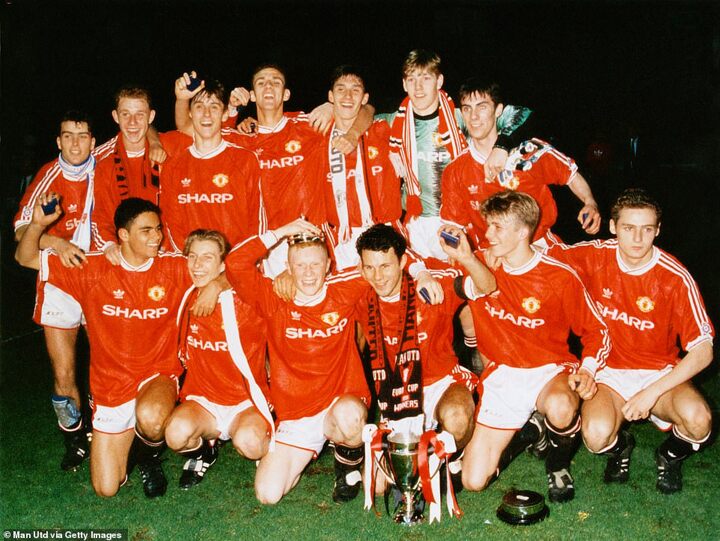
Little did they know at the time that half of that side would soon become the core of Alex Ferguson's first team for the better part of the next decade.
David Beckham, Ryan Giggs, Paul Scholes, Nicky Butt and the Neville brothers would go on to have exceptional careers at Old Trafford, and became known collectively as the Class of 92.
They are continuing to have an impact on professional football even today, through their joint ownership of Salford City. The club won their first game in the Football League on Saturday, against Stevenage, with the Class of 92s ownership having propelled them to promotion from the Northern Premier League Division One in 2014 all the way up to League Two in only five years.
It is just the latest chapter in their remarkable stories. But less well-known is what happened to the other players in that Manchester United Youth Cup side...
Kevin Pilkington
Not many players make the leap from United Counties League outfit Harrowby United to Manchester United's academy, but that was the career path of Class of 92 goalkeeper Kevin Pilkington.
He played in both legs of the 1992 Youth Cup final against Crystal Palace and earned a professional contract, finding himself one of the understudies to Peter Schmeichel.
Pilkington played eight times for United after making his debut in the Premier League game against Crystal Palace in November 1994.
Various loan spells followed before he joined Port Vale in 1998, though it wasn't until he arrived at Mansfield Town in 2000 that Pilkington played regular football.
He also played for Notts County and Luton before concluding his career at Cambridge, where he is now first-team goalkeeper coach.
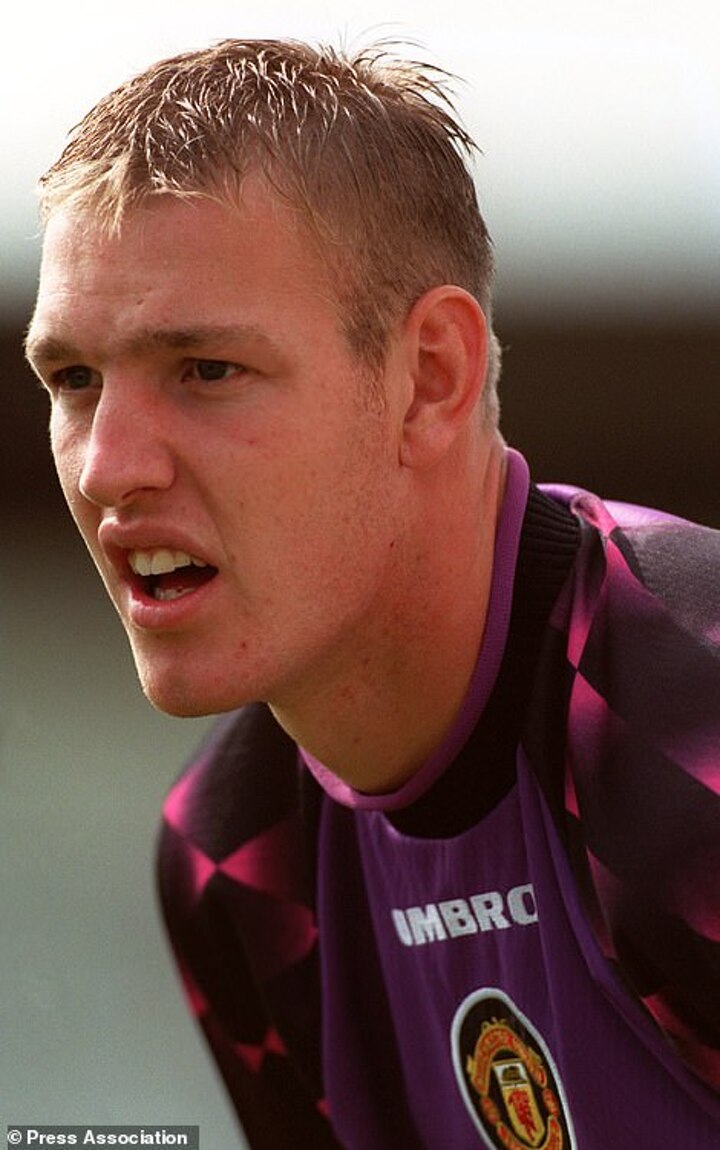
John O'Kane
Nobby Stiles was the man who spotted defender O'Kane playing grassroots football in Nottingham and Alex Ferguson convinced him to join United over a game of snooker.
He played in the 1992 final and would make seven first-team appearances, though it was Gary Neville who ultimately won the right-back spot ahead of O'Kane.
He remained at Old Trafford until 1998 when he was sold to Everton in search of first-team opportunities under Howard Kendall.
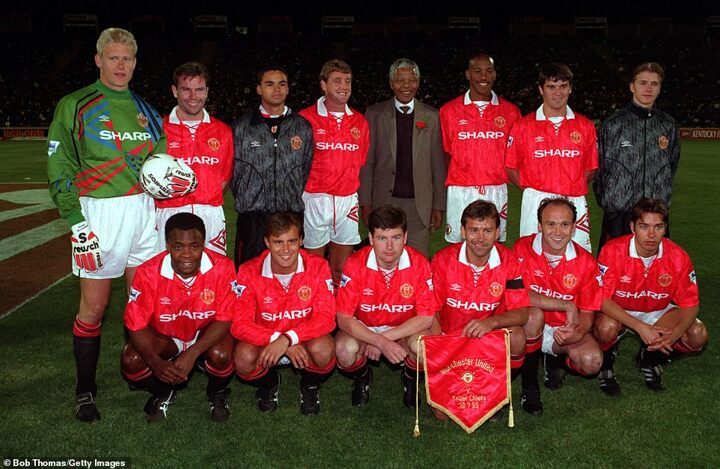
O'Kane fell out of favour when Kendall was sacked and replaced by Walter Smith, moving on to Bolton, Blackpool and then Hyde United, where he finished his career.
In a recent interview with the Manchester Evening News, O'Kane admitted he didn't match Neville's work ethic and paid the price.
'I was deemed as having the better technique over Gary,' he recalled. 'I'm not being big-headed but I was a better player than him at the time. But he just had a different make-up to me.
'He lived, breathed football and I didn't. That was the difference. I relied on my skill to get me where I had to be but to stay at the top you do need the 100 per cent dedication.
'I turned it on when I wanted, but didn't have that attitude.'
O'Kane, now 44, has set up the AOK Soccer School near his home in Darwen, Lancashire.
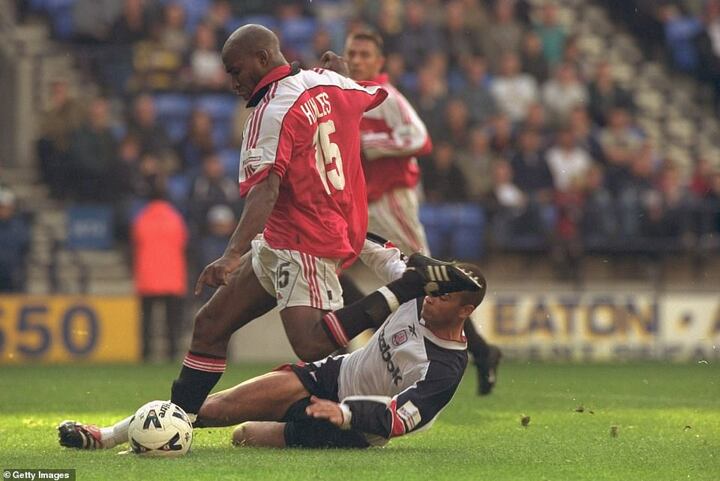
George Switzer
Left-back Switzer, who hailed from Salford, was playing for Barhill Lads Club when he was spotted by United at the age of eight.
That was during the Ron Atkinson era at Old Trafford, but it was under Ferguson that the academy took on a heightened importance.
His performances in the 1992 final earned a professional contract but, unlike his team-mates, Switzer's was only for the one year.
Ferguson considered him too small to play the left-back position and he was released at the end of the 1992-93 season.
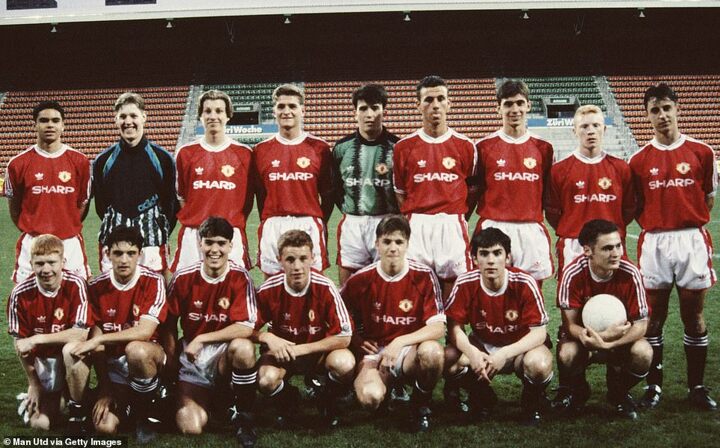
'I was happy to get offered a pro contract at United but I was a little bit disheartened because I thought I deserved two years,' he would later recall.
'I thought I was doing okay. When I left, I remember that the manager said, "I'll always be your boss." I always remember that.'
Switzer played most of his football at Hyde United and elsewhere in non-League while working as an optical technician for Dolland & Aitchison in their Salford factory and as a parcel courier.
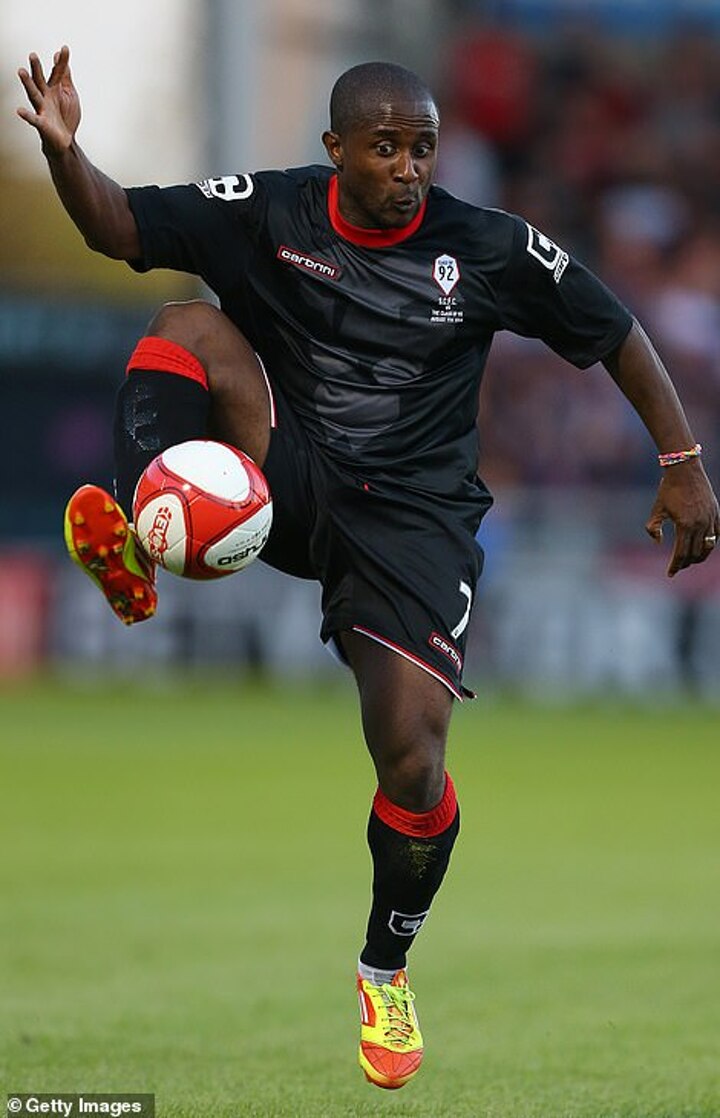
Raphael Burke
Burke was a winger in the Class of 92 side but didn't feature in the final.
Hailing from Bristol, he had been at the now defunct Football Association school of excellence at Lilleshall and trained alongside many players who went on to represent England.
Burke left United in April 1993 with one year left on his contract and subsequently worked in an office and on a fruit and veg stall before becoming a football coach.
He coached in Bristol City's academy for several years and also coached kids teams for a Christian mission in the area.
In an interview with The Independent in 2013, Burke said: 'What I remember most was the hunger of those lads that made it. It really has to be a burning passion in you if you want to succeed.
'I have read somewhere Gary [Neville] saying that he gave up his friends because he just wanted to be a footballer.
'I didn't have that hunger at the time. It's best I am honest about it because otherwise you end up blaming everyone else.
'Some teenagers just don't have the maturity to realise what they have. David [Beckham], Nicky [Butt], Gary – they had the maturity to realise this was a precious chance at United.'
Gary Neville
There's no question the elder Neville brother seized his opportunity at United with both hands.
602 appearances, eight Premier League titles, three FA Cups, two League Cups and two Champions Leagues attests to a sterling career at Old Trafford for the right-back.
Neville was captain of the 1992 Youth Cup side in the spring and by September had made his senior debut against Torpedo Moscow in the UEFA Cup.
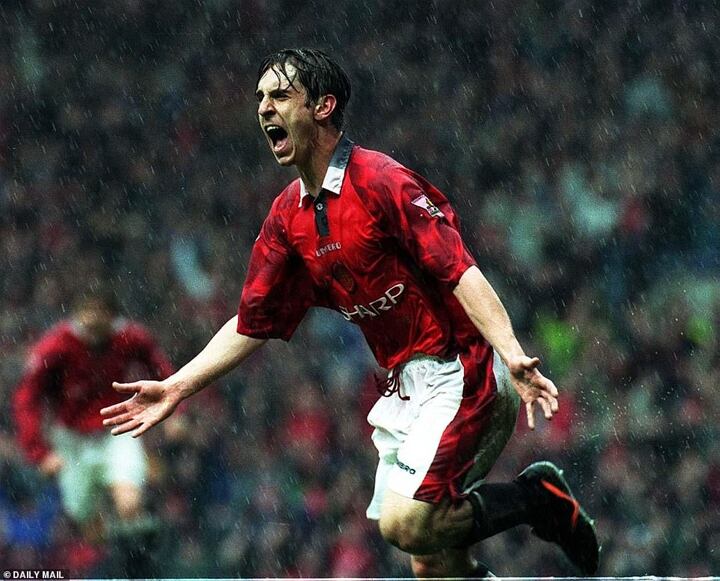
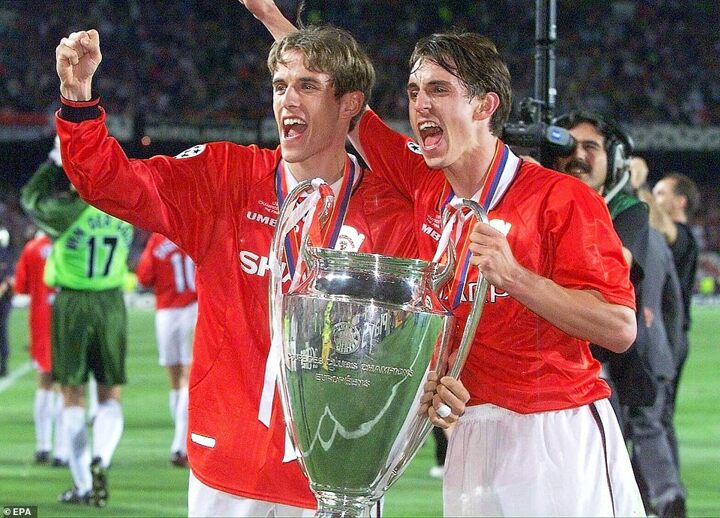
Once established as a first-team regular during the 1994-95 season, Neville didn't relinquish his spot until retirement in 2011.
Neville has since been a coach with the England team and the manager of Spanish club Valencia and is the owner of Salford City along with fellow Fergie Fledglings Giggs, Scholes, Butt, Beckham and his brother Phil.
He is also a well-respected pundit and co-commentator on Sky Sports and has also amassed an extensive property portfolio, including Hotel Football adjacent to Old Trafford.
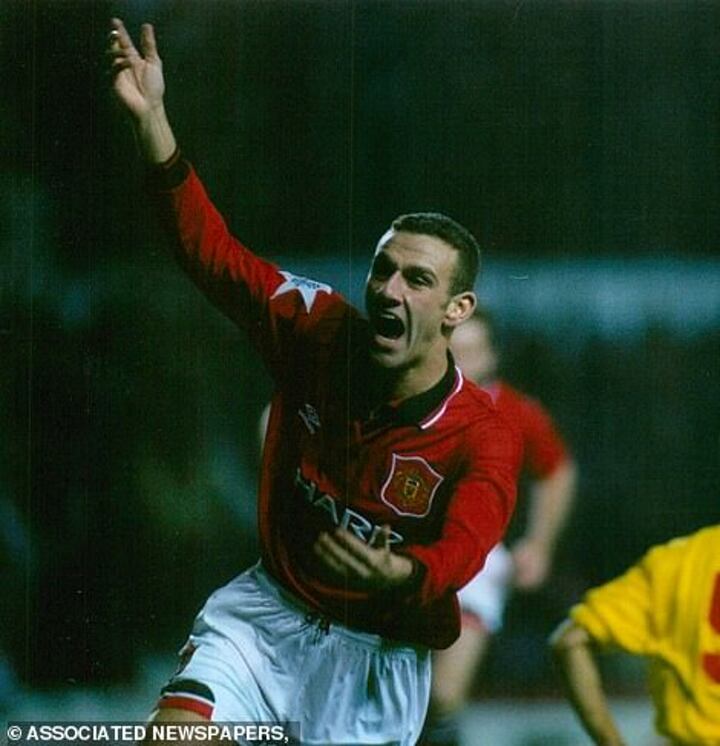
Simon Davies
The Welsh midfielder scored in the second leg of the 1992 final and went on to play 20 first-team matches for United between 1992 and 1997.
His one goal for the club came in a 4-0 win over Galatasaray during the 1994-95 Champions League group stage.
However, he was unable to hold down a first-team place and was sold to Luton Town for £150,000 in August 1997 and subsequently embarked on a career that took in Macclesfield, Rochdale, Bangor City, Total Network Solutions and Rhyl.
Davies, whose one cap for Wales came against Switzerland in 1996, moved into coaching, initially at Chester.
He then joined the staff of United's neighbours City, taking charge of the reserve teams and then, from last year, as head of coaching for each level from under 13s to under 23s.
Andy Noone
Noone was in the United squad for their 1992 FA Youth Cup run and was a centre-forward, though for a short time he played in defence.
A Salford lad, he had joined United aged nine and signed an apprenticeship at 16.
He didn't play for United's first team and was released to find another club. Noone played for Bury, Mossley, Atherton Laburnum Rovers, Beaconsfield and Salford City before retiring at the age of 31.
He now works as an environmental consultant in Manchester.
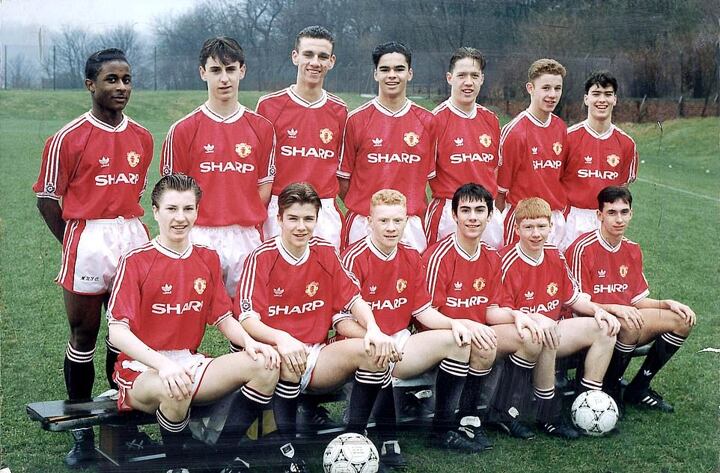
Nicky Butt
The tough midfielder played in both legs of United's win over Crystal Palace and went on to make his first-team debut in a Premier League match against Oldham Athletic in November that year.
He would become a fixture in United's engine room for the next decade, winning a host of honours including six Premier League titles, three FA Cups and the Champions League in 1999.
Butt, who was capped 39 times for England, left for Newcastle United in 2004 and played on until 2011.
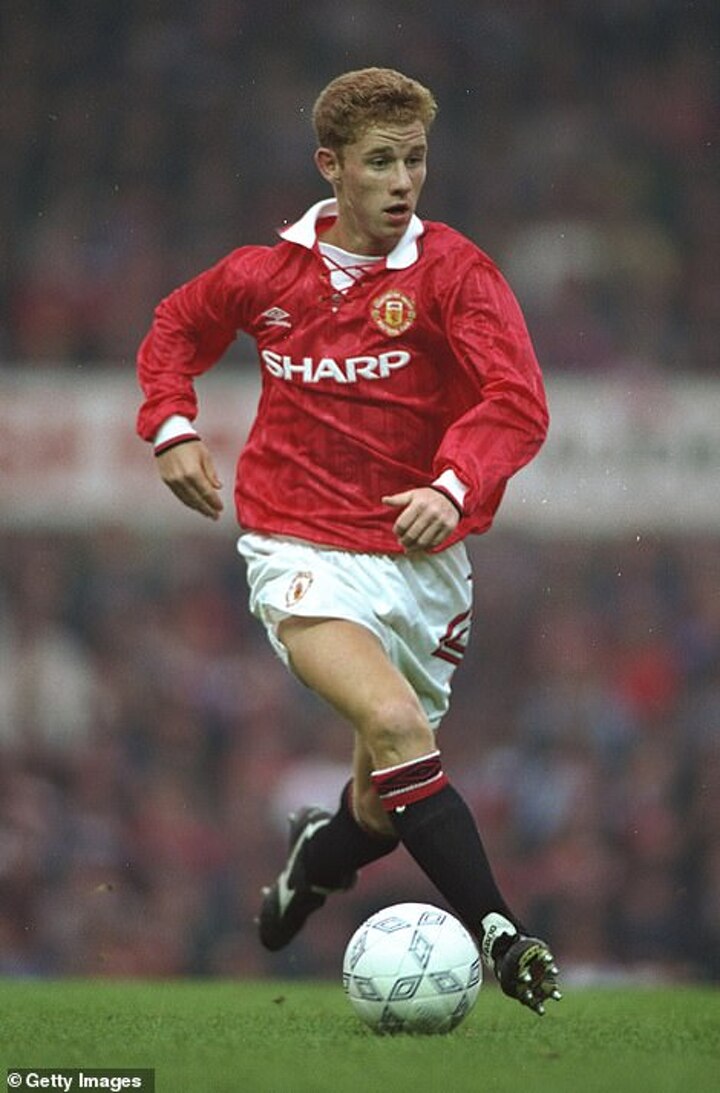
He returned to Old Trafford in 2012 as coach of the reserve team and since February 2016 has been head of the academy, helping oversee the progress of the next generation of talent.
Butt is also one of the co-owners of Salford City, who have just been promoted into the Football League for the first time.
Ben Thornley
Thornley, a winger, was arguably the member of the Class of 92 who generated the most excitement.
Indeed, there is an anecdote that Nobby Stiles, sitting with Sir Matt Busby in a Sale wine bar sometime in the early 1990s, was asked who United's most talented up-and-coming youngster was.
'Ben Thornley,' Stiles replied without hesitation. 'Ben is the closest I've seen to George Best in all my time at the club.' Busby didn't argue.
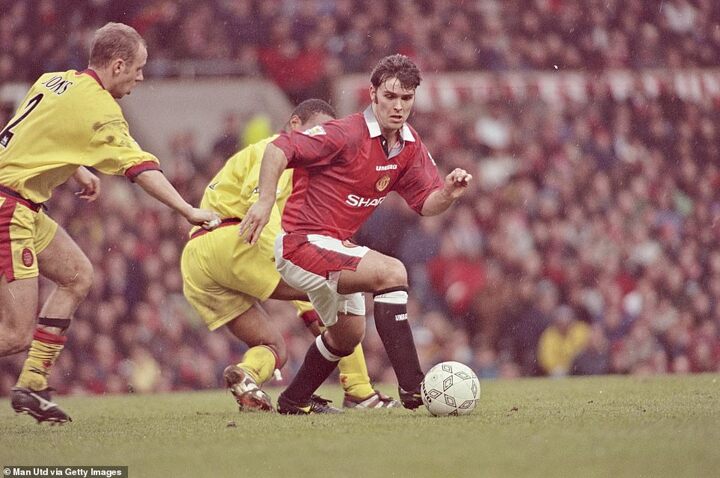
Bury-born Thornley was certainly regarded above Beckham and Scholes as the stand-out player in United's Class of 92 side but he was denied their career by a cruel twist of fate.
He had made a handful of first-team appearances before suffering serious knee-ligament damage in a reserve game against Blackburn Rovers following a tackle by Nicky Marker.
That was in April 1994 and though Thornley battled his way back following surgery, his United chance had passed.
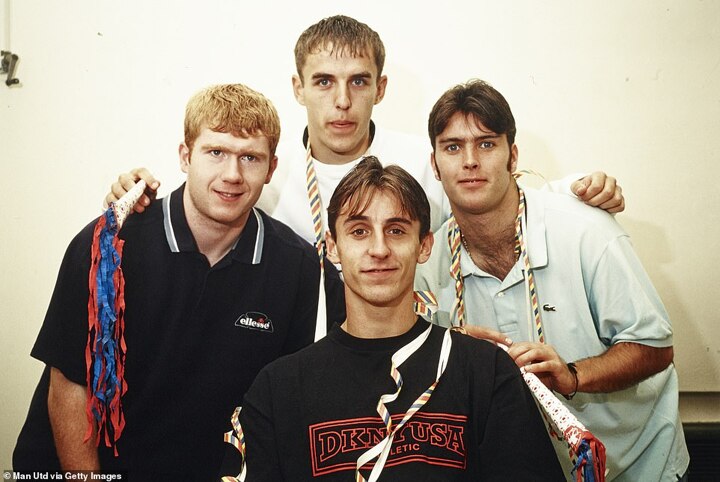
He carved out a decent career with Huddersfield, Aberdeen, Blackpool and others but wrestled with alcohol and personal issues.
Beckham said of Thornley: 'Ben would have outdone us all - that's the sad part,' while Neville described him as 'one of the most outstanding talents I ever played with.'
After finishing his playing days, Thornley worked as a minicab driver, a restaurant manager and a tiler before working for United's in-house television station MUTV.
Robbie Savage
Savage would become best known as a hard tackling midfielder but the Welshman was actually a striker when he started out at United in 1991.
He came off the bench in both legs of the Crystal Palace final and was subsequently rewarded with a professional contract, though he never played a first-team match for United.
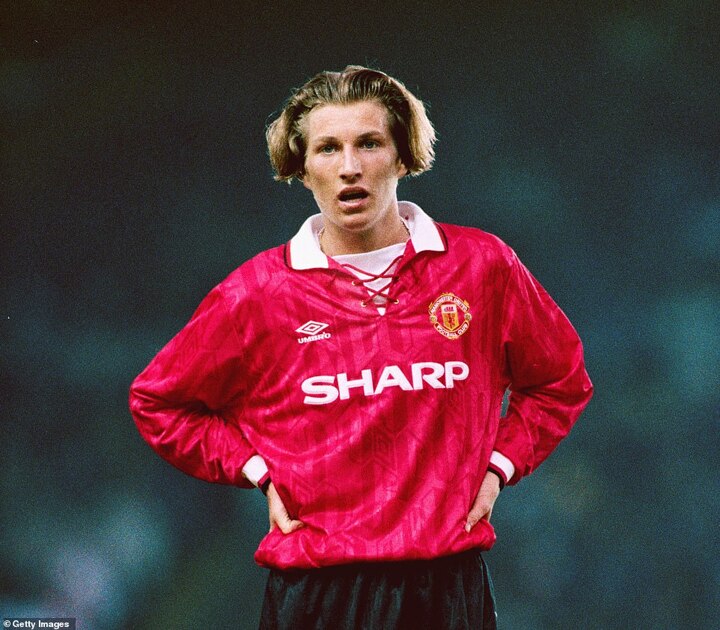
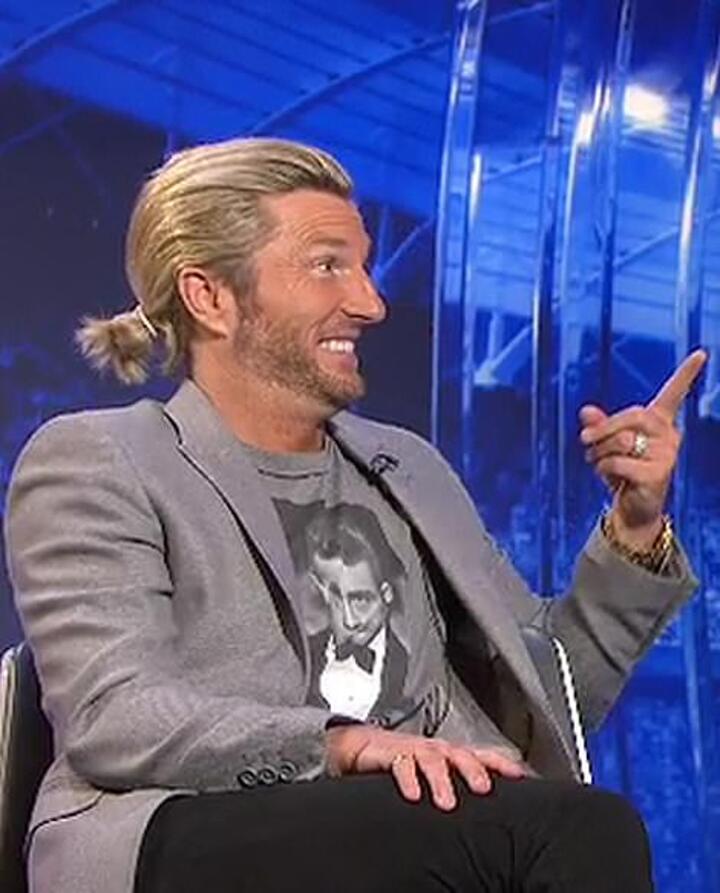
He moved to Crewe Alexandra in 1994 and later played at the top level for Leicester, Birmingham, Blackburn and Derby, as well as winning 39 caps for Wales.
Towards the end of his career, Savage made occasional pundit appearances on television and radio, and this has become his career post playing.
Savage can be found giving opinions on BBC Radio 5 Live and BT Sport. He has also made an appearance on the BBC's Strictly Come Dancing.
David Beckham
Having signed for the club on a Youth Training Scheme contract on July 8, 1991, east London lad Beckham was in his first season when helping United to Youth Cup success.
He scored the second goal in United's 3-1 first leg win over Palace and played the full 90 minutes of the 3-2 win in the second leg.
His impact in the competition led to Ferguson handing him a first-team debut in a League Cup match against Brighton in September 1992.
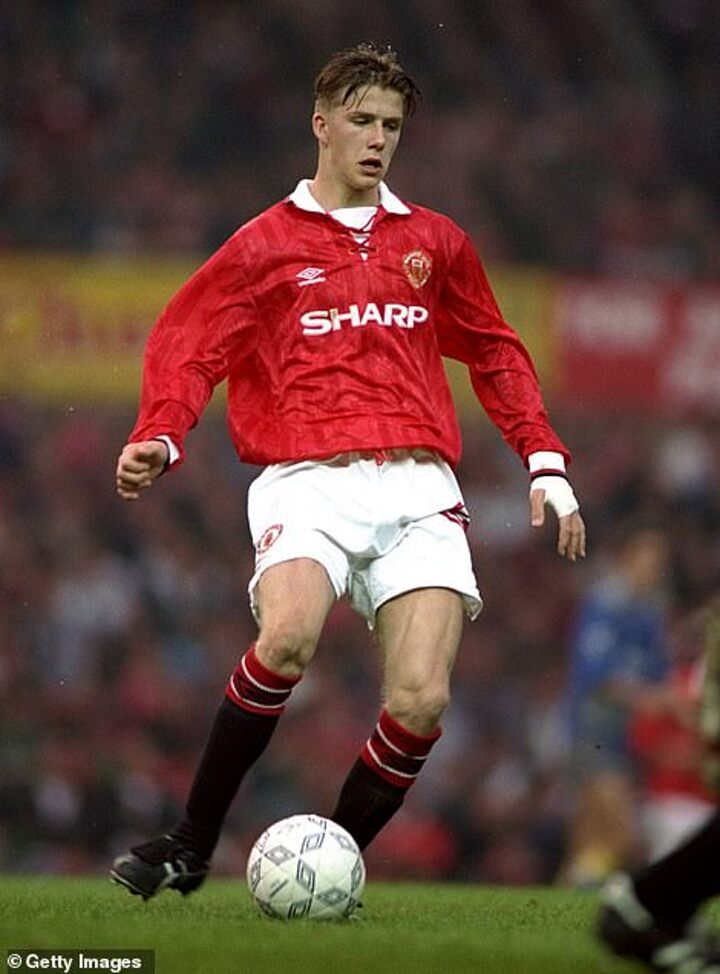
Becks signed a professional contract in January 1993 and, well, the rest is history.
An icon of the club, Beckham played 394 times and scored 85 goals, winning all manner of honours before leaving for Real Madrid in 2003.
He later played for LA Galaxy and Paris Saint-Germain, as well as AC Milan on loan. Beckham was capped 115 times for England and captained them 59 times.
Certainly a busy man after retirement, Beckham has committed himself to charity work, setting up his MLS club Inter Miami and, as of January, co-owning Salford City.
Keith Gillespie
Gillespie came on as a substitute during the second leg against Palace, winning the Youth Cup a year after signing for United.
Hailing from Larne in Northern Ireland, the winger was scouted playing for St Andrews FC in Belfast.
He made his senior debut in an FA Cup third-round tie against Bury in January 1993, scoring in the 2-0 win, but despite a handful of appearances, Gillespie was unable to dislodge first-choice right winger Andrei Kanchelskis.
Gillespie moved to Newcastle United in January 1995, a £1million makeweight in the £7m deal that took striker Andy Cole in the opposite direction. He spent long spells there and at Blackburn, Leicester and Sheffield United, but sadly fell victim to gambling addiction. He has estimated that it has cost him £7million.
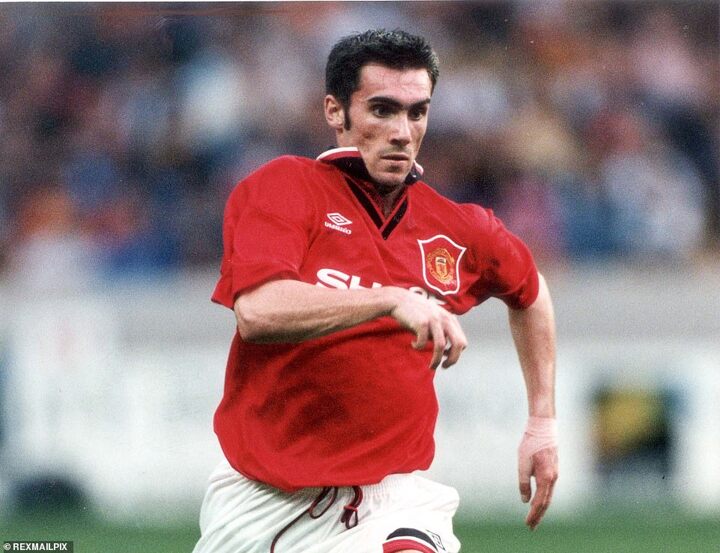
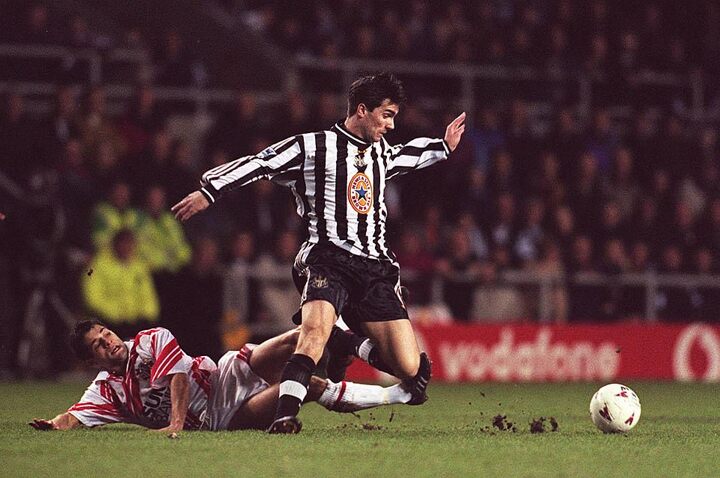
Many years later, Gillespie revealed that Ferguson had once pitted the Class of 92 youth side against United's first team - reigning champions at the time - in training and the kids had ran out 4-2 winners.
'You know, that sort of showed you how good the team was,' recalled Gillespie. 'Because this was a Man United team which were in the middle of dominating everything.
'Playing against those people - [Eric] Cantona, [Mark] Hughes, Schmeichel - unbelievable players.
'I'm sure they were a little bit worried, because we were the new kids on the block, and they're maybe looking over their shoulders thinking, "Oh, he's going to be taking my place soon…"'
Ryan Giggs
Giggs, a player United rightly viewed as a generational talent, was unique in the fact he'd already made a few first-team appearances by the time of the 1992 FA Youth Cup win.
The Welsh winger made his league debut against Everton on March 2, 1991 and was starting to challenge Lee Sharpe for the position in Ferguson's thinking.
But in the meantime, Giggs, still just 17, continued to play for the youth side and captained them in certain matches.
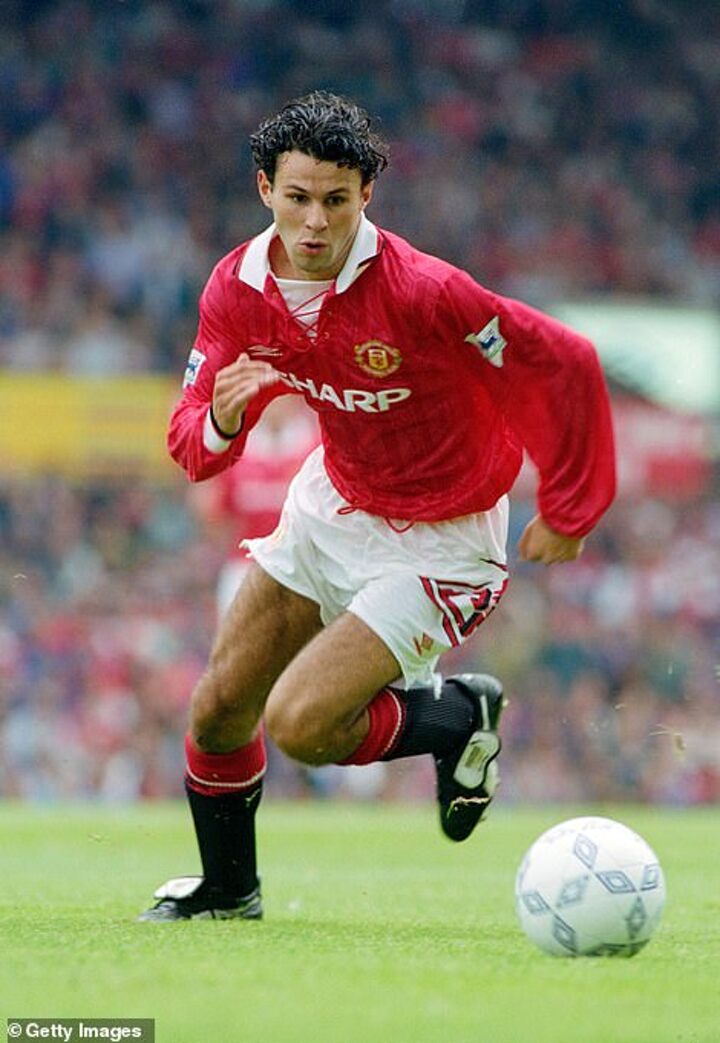
He only played in the second leg against Palace and it would prove one of his last for the youth side.
Giggs established himself as a first-team regular as the new Premier League era dawned in 1992 and that proved the start of a remarkable career at Old Trafford spanning almost 25 years.
He played 963 times for the club, scoring 168 goals, and won just about every honour in the club game.
Chris Casper
Defender Casper had signed for United as a trainee in 1991 and played a full part in the club's Youth Cup run that season.
He was rewarded with professional forms in January 1993 but would have to wait a little longer than some of his Class of 92 contemporaries for a first-team debut.
That came in a League Cup tie against Port Vale at Old Trafford in October 1994 but Burnley lad Casper was unable to secure a first-team place.
He went out on three loan spells in the Football League - at Bournemouth, Swindon Town and Reading - before signing for the Royals, then a third tier team in November 1998 for £300,000.
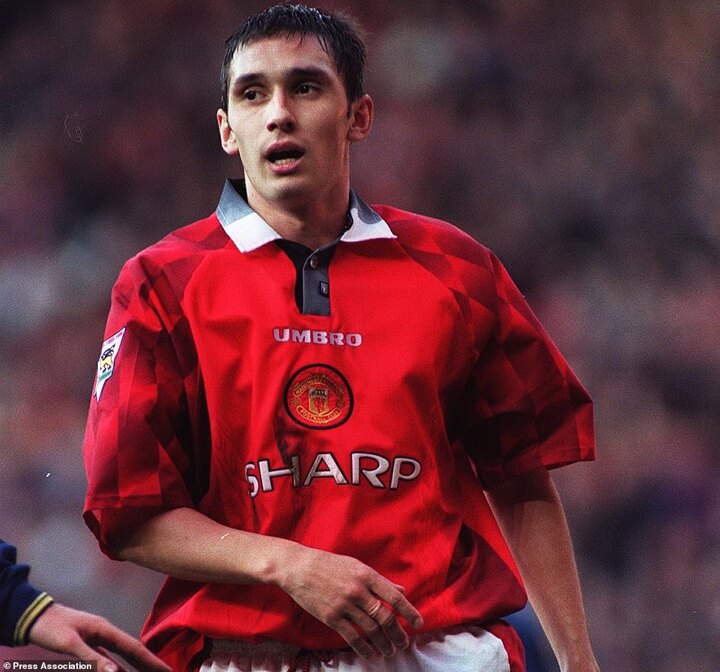
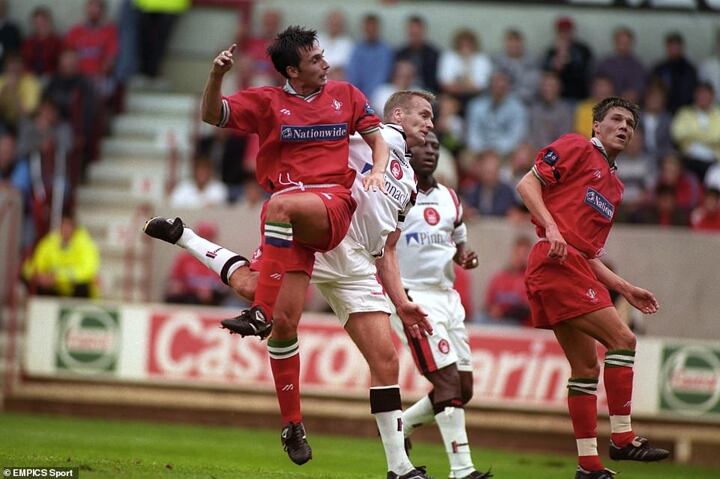
Unfortunately, Casper was to suffer a double leg fracture at the age of 24 in a match for Reading on Boxing Day 1999. He never fully recovered from the injury and it proved his last professional match.
Four years later, Casper received an undisclosed out-of-court compensation settlement from Richard Carpenter, the Cardiff City player who made the career-ending tackle on him.
He subsequently managed Bury and worked as a club support manager for the Premier League. He is now sporting director at Salford and reunited with his Class of 92 colleagues.
Colin McKee
The Glaswegian played up front usually but was sometimes deployed as a winger and he started the second leg of the final at Old Trafford.
His performances in that cup run led to the reward of a professional contract in August 1992, though he'd spent the second part of that season on loan at Bury.
McKee won the Denzil Haroun reserve team player of the year award in 1993 but only made one first-team appearance - against Coventry on the final day of the Premier League season in 1994.
He was duly sold to Kilmarnock in September 1994 and would go on to have a journeyman career around the Scottish leagues until retiring from football in 2001.
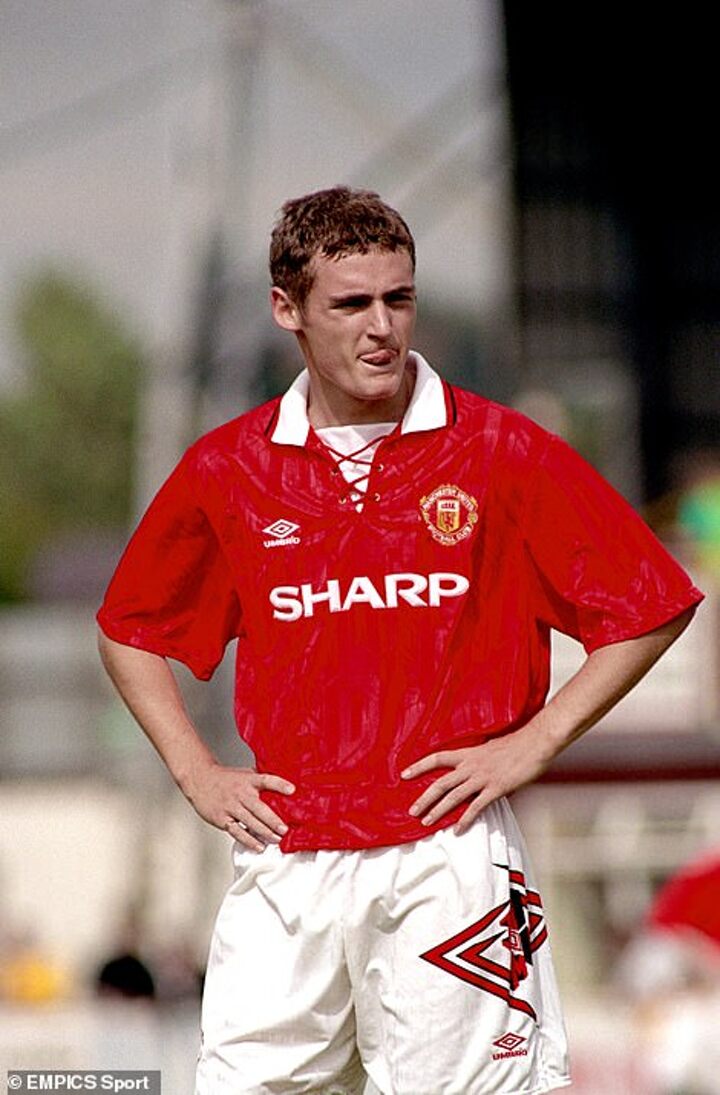
Lenny Taylor
Taylor was a substitute for the first leg of the 1992 final but didn't make the team for the second. Nonetheless, he still received a medal.
Scout Geoff Watson spotted Taylor, a right-back, playing in Birmingham and he then impressed in a trial match at Nuneaton attended by Ferguson.
Taylor spent a year as a schoolboy in United's academy and two years on the club's youth training scheme.
But he wasn't able to keep pace with Gary Neville's progress in his position and was released by United.
Taylor recalled to The Independent: 'I got a little feeling I wasn't going to be offered a pro deal. You know deep down.
'Sir Alex called us into his office. He praised us for what we had done but said, "I can only take so many."'
He went to Port Vale and Walsall for trials and later played in non-league at Solihull Borough but dropped out of the game and worked as an electrical labourer.
